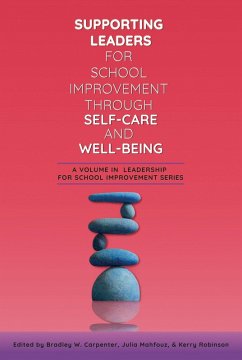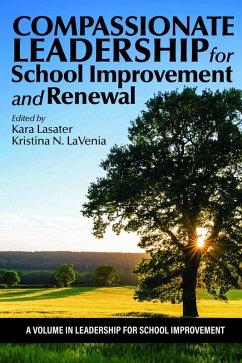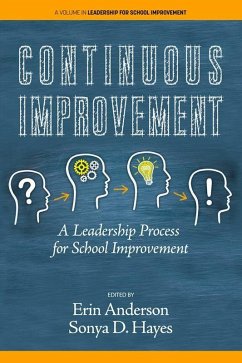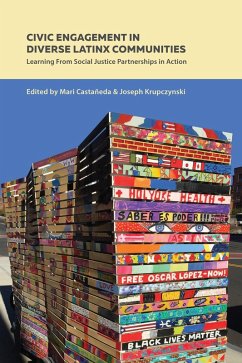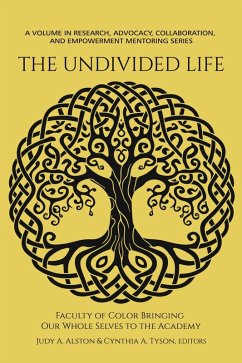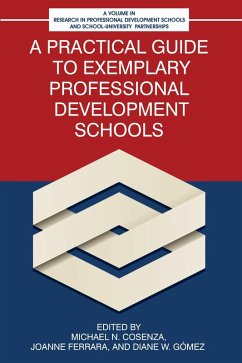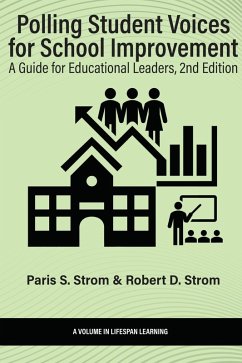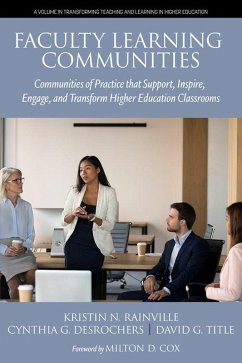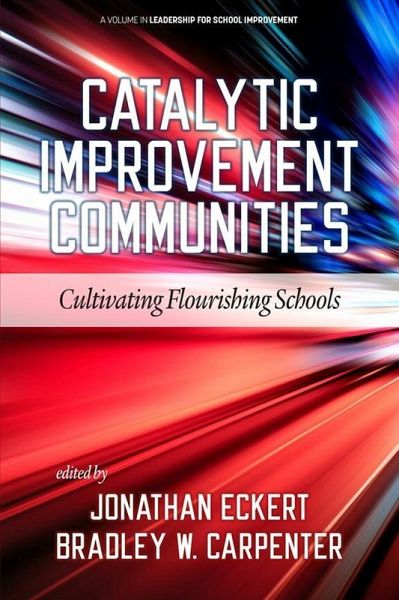
Catalytic Improvement Communities (eBook, PDF)
Cultivating Flourishing Schools
Redaktion: Carpenter, Bradley W.; Eckert, Jonathan
Versandkostenfrei!
Sofort per Download lieferbar
80,60 €
inkl. MwSt.
Weitere Ausgaben:

PAYBACK Punkte
0 °P sammeln!
In chemistry, a catalyst accelerates change without being depleted. As we seek school improvement, we need sustainable, scalable changes, and therefore catalytic structures are ideal. From communities of practice to professional learning communities to Networked Improvement Communities (NICs) much has been made in the scholarly and consultancy literature about collaborative approaches to improvement.The benefit of improvement communities that operate in networks over professional learning communities or isolated communities of practice is that they allow for broader experimentation, more rapid...
In chemistry, a catalyst accelerates change without being depleted. As we seek school improvement, we need sustainable, scalable changes, and therefore catalytic structures are ideal. From communities of practice to professional learning communities to Networked Improvement Communities (NICs) much has been made in the scholarly and consultancy literature about collaborative approaches to improvement.The benefit of improvement communities that operate in networks over professional learning communities or isolated communities of practice is that they allow for broader experimentation, more rapid iteration, and greater possibility for scaling improvement. Educators have many tools and protocols to support the various approaches to improvement, evidenced by the many tools the Carnegie Foundation has developed for NICs alone. However, we need to understand how these are being used in a wide range of contexts and iterations.This book answers three questions: 1) How can improvement communities act as catalysts? 2) How do improvement communities serve as discipline, creative inquiry? 3) Most importantly, how do improvement communities support flourishing individuals? These three questions serve as the drivers of three sections with practical recommendations and insights for teachers, administrators, and policymakers that will lead to more sustainable leadership practices and thriving educators, students, and communities.
Dieser Download kann aus rechtlichen Gründen nur mit Rechnungsadresse in A, B, BG, CY, CZ, D, DK, EW, E, FIN, F, GR, HR, H, IRL, I, LT, L, LR, M, NL, PL, P, R, S, SLO, SK ausgeliefert werden.




